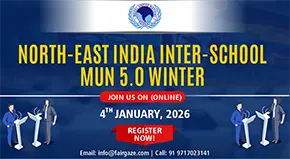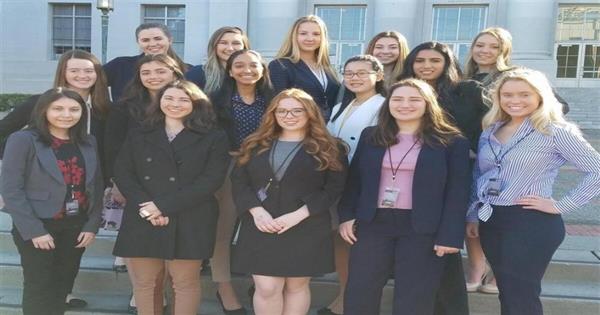
How Long Do High School MUN Conferences Last?
Conferences stimulating United Nations are known as high school MUN conferences. They typically last anywhere from a single day to an entire week. It depends on the size and scope of the event.
Students in high school and colleges can participate in simulated United Nations negotiations at these conferences, which gives them the opportunity to experience the dynamics and challenges of international diplomacy.
Length of High School MUN Conferences
The duration of a Model United Nations conference can range anywhere from a single day to an entire week.
At Model United Nations conferences, in addition to the committee sessions, there are frequently keynote speeches, cultural events, and social activities.
Speakers at the keynote event might be current or former diplomats, officials from the United Nations, or specialists in international relations. Cultural events give delegates the chance to learn about the cultures of other countries, and social activities give participants the opportunity to network and engage in casual conversation with one another.
The typical schedule for a one-day conference consists of committee meetings, keynote addresses, and various social events. These can last anywhere from eight to ten hours.
Full-week conferences, on the other hand, typically consist of multiple days of committee meetings, as well as cultural activities and time for delegates to prepare.
What to Do in High School MUN Conferences?
The goal of the delegates who attend MUN conferences, which are held all over the world, is to negotiate and draught resolutions on a wide variety of global issues, such as climate change, and human rights. As part of their preparation for the conference, delegates are expected to conduct research on the nation they will be representing and become familiar with that nation's stances on the various topics that will be discussed.
The conference proceedings themselves are typically organised around a series of committee sessions, during which delegates engage in resolution drafting and negotiation. In the course of these sessions, delegates will attempt to reach a consensus and advance their positions through the use of formal procedures such as speeches, moderated and unmoderated caucuses, and voting.
The United Nations Model United Nations (MUN) provides delegates with the opportunity to improve their public speaking, negotiation, and leadership skills by participating in MUN conferences. In addition to this, it serves as a forum in which to discuss global issues and the part that diplomacy plays in their resolution.
In addition, High School MUN conferences provide students with the opportunity to network with other young leaders from all over the world. This can assist students in developing relationships that may prove useful later on in their professional careers.
How to Apply to High School MUN Conferences?
If you are interested in attending a Model United Nations (MUN) conference, the first thing you need to do is locate a conference in your region or select one that you would like to go to.
You can accomplish this by conducting a search on the internet or getting in touch with the Model United Nations club at your school. Once you have located a conference, you will need to get ready for it by conducting research on the nation whose position you will be representing and becoming familiar with that nation's stances on the issues that are being discussed.
Because the rules of procedure that are followed at MUN conferences can change from one conference to the next, it is essential to be well-versed in these rules ahead of time. In addition, it is beneficial to practise skills such as public speaking, negotiation, and leadership in order to get ready for the conference.
In conclusion, High School Model United Nations (MUN) conferences offer students a valuable opportunity to participate in simulated United Nations (UN) negotiations. This gives students the chance to experience the dynamics and challenges of international diplomacy.
Related Blogs
-
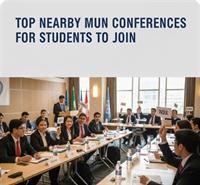
24-Dec-2025 Top Nearby MUN Conferences for Students to Join
-
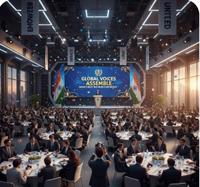
27-Nov-2025 Global Voices Assemble India Next Big MUN Conference
-
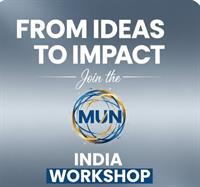
13-Nov-2025 From Ideas to Impact Join the MUN India Workshop
-
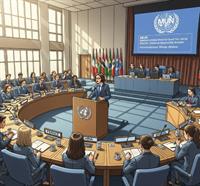
14-Aug-2025 What Is A Conference In MUN?
-
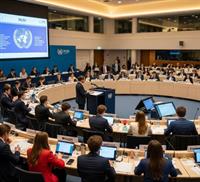
07-Aug-2025 What Does the MUN Do?
-
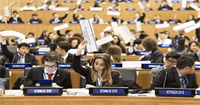
03-Jul-2025 Ways to Research for a Model UN Position Paper
-
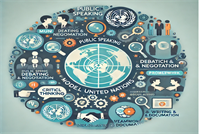
28-Mar-2025 What skills do you gain from Model United Nations?
-
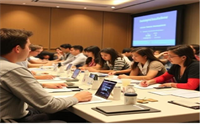
19-Mar-2025 MUN Near Me Upcoming Conferences and How to Register

